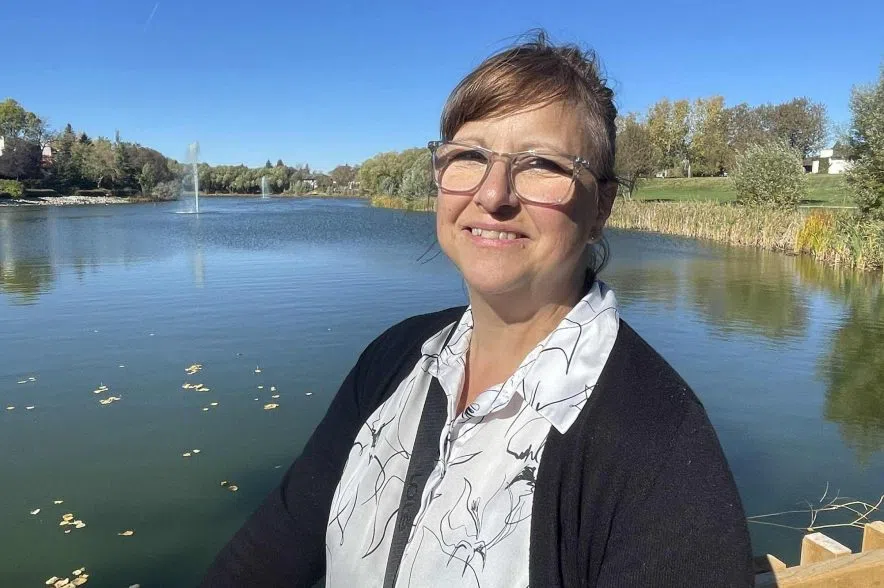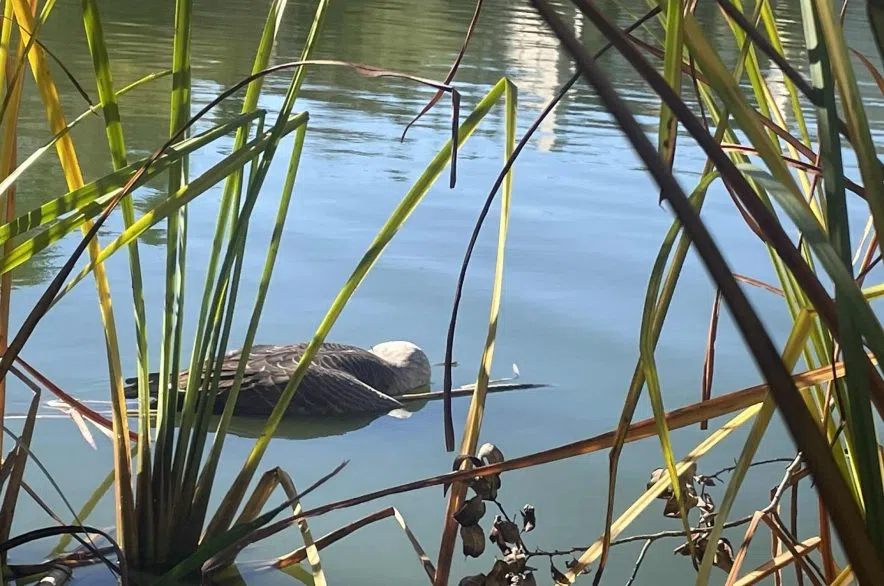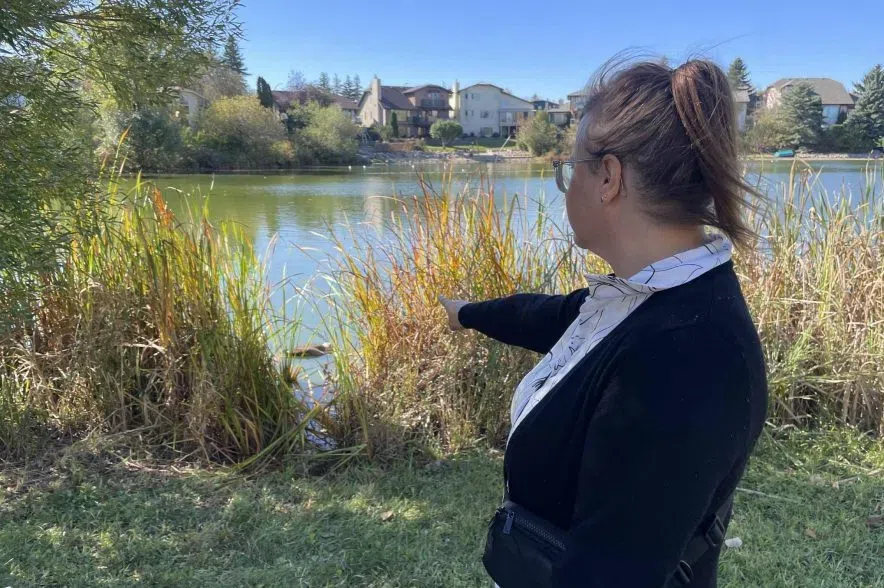The discovery of several sick and dead geese at Lakewood Park in Regina has left Carrie Klashinsky worrying while she walks her dogs.
Klashinsky said she found the first ill goose a few weeks ago while walking through the park in northwest Regina. She said the goose was sitting on a path and twitching its neck back and forth.
Read more:
- New analysis indicates higher lethality of avian flu at B.C. ostrich farm: CFIA vet
- Park signs intended to help Regina take pride in being ‘bird friendly’ city
- The Bird Lady: Meet the Saskatoon woman rescuing abandoned parrots
“It was suffering. It just needed to be put out of its misery, and quickly,” she said.
“I don’t think they can bring it back at that point… It doesn’t move. It’s not afraid of people.”
Klashinsky said seeing the goose bothered her, and she began making calls to different clinics and the City of Regina.
“They’re geese and we complain about them all the time,” Klashinsky said, “but it was very disheartening to see this poor thing suffering.”

Carrie Klashinsky, who walks her dogs in the park every day, said she’s seen a number of sick or dead geese recently. (Gillian Massie/980 CJME)
When she contacted local veterinary and wildlife rehabilitation clinics, Klashinsky said she was told they couldn’t take in the goose because it sounded like it was showing symptoms of avian influenza, and the organizations didn’t want to risk infecting the birds already in their care.
Klashinsky said she contacted city workers to share the location of the sick bird and expressed concern that it may have avian flu. She said two city workers later came to the park to block off the area where the goose was sitting.
But when Klashinsky was walking her dogs that sane evening, she said she found two more geese that were even sicker than the first, and she reported them to the city.
While an avian flu outbreak was not confirmed, Klashinsky said she’s concerned about the potential for avian flu to transmit to people or pets in the park.
While 980 CJME was interviewing Klashinsky at Lakewood Park, she spotted another dead goose floating in the pond.

Carrie Klashinsky said she contacted the City of Regina to come and pick up the dead goose. (Gillian Massie/980 CJME)
Russell Eirich, the City of Regina’s director of parks and open spaces, said at least four sick or dead geese have been picked up from Lakewood Park recently.
He said there are more geese in the city this time of year as they migrate south for the winter.
“To see a goose that’s injured or dying… it’s not really a surprise to us,” Eirich said.
City workers did not test the birds for avian flu because Eirich said staff didn’t see the need for it.
In a statement, the Saskatchewan Environment Ministry it said there has been an increase in calls about sick waterfowl and raptors over the past several weeks, both in Regina and across the province.
“Cases of mortality thus far this season have been sporadic, and no large-scale die-offs have been reported,” the ministry noted.
While avian flu can be transmitted to humans and pets, the ministry said such transmission is very rare.
How to report a sick or dead goose
Eirich said that if people see a sick or dead goose in Regina, they can contact the city and a worker will be dispatched.
“If it’s a live goose, the team will be dispatched immediately,” he said. “If it’s dead already, that will be done next business day.”
If someone lives outside the city and sees a bird that is showing symptoms of sickness such as avian flu, the ministry said the case can be reported to the ministry or to the Canadian Wildlife Health Co-operative through their Wildlife Health Tracker app.
“While the risk of human infection remains low, the public is advised to avoid handling dead birds,” the ministry noted.
If someone needs to handle a bird carcass, the ministry recommended wearing gloves and washing your hands with soap and water afterwards.
The ministry said avian flu has circulated among North America’s wild bird populations since 2021, and is closely monitored.
“It is also important to know that a vast majority of birds are healthy and are now in the process of migrating to their over-wintering grounds in the south,” said the ministry.
“Saskatchewan is the land of the living skies and, if the public is aware of what to look for and takes precautions when they encounter sick birds, we can all enjoy this unique spectacle.”











